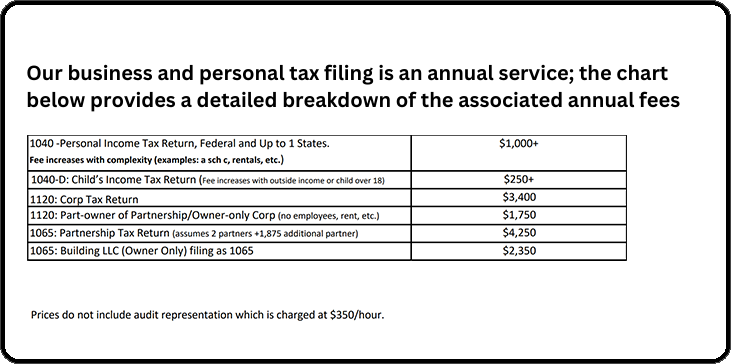Tune in to our podcast series: The Dental Board Room
Listen Now

Why So Many Dentists Struggle With Money Despite Strong Income
At first glance, dentists seem to have it all figured out: years of education, a respected profession, and a steady, often high income. Yet, behind the scenes, many dental professionals quietly struggle with financial stress. The truth is, strong income doesn’t always equal financial stability.
A big reason is what experts call “pent-up consumerism.”
After years of living on student loans and tight budgets during dental school and residency, the urge to finally enjoy the fruits of hard work can be powerful. A new car, a bigger home, maybe the latest tech, it all feels justified.
Then there’s the pressure to keep up. Dentistry is a visual profession. Peers drive nice cars, attend conferences in scenic places, and post about their thriving practices online. It’s easy to start matching that lifestyle even before the financial foundation is ready.
And to make things more complicated, most dental schools don’t teach business or personal finance. Dentists graduate as clinical experts, but few have a roadmap for managing practice cash flow, taxes, and personal spending. The result? Blind spots that quietly drain long-term wealth.
Let’s break down the most common money mistakes dentists make and how small shifts can prevent years of financial pressure.
It sounds simple, but this is one of the most common traps in dentistry. The practice earns well, patients are steady, and money seems to be coming in, so spending feels safe. But behind that comfort often hides a mismatch between income and lifestyle.
Many dentists use their business account like a backup ATM, pulling out funds whenever personal expenses come up. On paper, it seems harmless after all, it’s your business. But those small, irregular withdrawals add up quickly.
Another issue? The false signal of cash sitting in the account. Seeing a healthy balance doesn’t always mean you can afford to spend it. That money may be earmarked for upcoming bills, payroll, taxes, or loan payments.
The real solution starts with clarity. Know exactly how much your personal lifestyle costs each month, housing, insurance, debt payments, leisure, everything. Only when you have that number can you truly see whether your spending aligns with your income.
This mistake often flies under the radar. Many dentists see their practice as their main source of income, but few realize the danger in taking out more than the business can safely distribute.
It usually starts with mixing business and personal cash. Maybe you cover a family trip through the business account or pay personal bills, thinking you’ll balance it later. The problem is, it blurs financial lines and makes tracking real profitability impossible.
Here’s where the concept of basis comes in. Basis is your ownership equity in the business what you’ve actually invested. When you take out more money than your basis allows, especially after large deductions or loans, you can end up triggering taxable distributions without realizing it.
Big deductions and equipment loans can disguise this issue. You feel wealthier on paper, but the business may not truly have the cash to support those withdrawals. Over time, this creates strain on both the practice and your personal finances.
Here’s a quiet truth in dentistry: even million-dollar producers can feel broke.
It’s not about how much you earn, it’s about how much you keep. When the ratio between spending (consumption) and income grows too high, savings and investments take a back seat.
It’s easy to justify lifestyle creep. A little upgrade here, a family trip there, after all, you’ve earned it. But over time, those incremental increases compound. The practice grows, but personal wealth stalls.
Financially secure dentists tend to keep their consumption-to-income ratio low, meaning they live on far less than they make. The math is simple but powerful: a lower lifestyle cost equals more room for savings, investments, and peace of mind.
The goal isn’t to cut back drastically; it’s to find a comfortable, sustainable rhythm that leaves margin for the future.
Here’s a simple truth that changes everything: people spend what sits in their account.
If savings are optional, they’ll almost always lose out to day-to-day needs. That’s why automation matters. Setting up automatic transfers to savings or investment accounts ensures you’re paying your future self first, not just your bills.
For practice owners, this can be done through payroll. Treat your savings contribution like a non-negotiable expense, just like rent or utilities.
Automation also helps overcome one of the biggest barriers to building wealth: decision fatigue. When saving becomes automatic, you don’t have to rely on willpower or timing. The habit builds itself quietly in the background.
You don’t have to be a tax expert to lose money through simple oversights. Many dentists miss out on opportunities like the PTE (Pass-Through Entity) election, which allows business income to bypass certain federal limits on state tax deductions.
Missing that one checkbox can cost thousands of dollars every year, and the worst part is, it’s completely preventable.
The lesson here is simple: small tax decisions compound over decades. A missed election, a misclassified expense, or an underused retirement plan can quietly chip away at your financial progress.
The fix? Build a rhythm of regular communication with your tax advisor. Don’t just meet once a year at filing time; schedule mid-year check-ins to plan.
High earners often become targets for “can’t-miss” investment pitches, private real estate funds, startups, or a friend’s new venture. These offers sound appealing because they promise high returns and exclusivity.
But too often, they lead to disappointment or loss.
The problem isn’t ambition, it’s lack of due diligence. Many dentists jump in without understanding the true risk or liquidity limits. Some deals tie up cash for years, leaving you exposed if your practice suddenly needs capital.
A simple rule can save you here: if you don’t understand how the investment makes money, you probably shouldn’t invest in it.
Use filters like these before committing:
The goal isn’t to avoid risk completely; it’s to choose smart, calculated risks that align with your bigger financial plan.
For many dentists, tax planning is a once-a-year event. You send the documents, sign the forms, and move on. But this “set it and forget it” approach often leads to missed opportunities and unnecessary stress.
Tax laws shift, income fluctuates, and deductions change, which means your strategy should, too. When you meet your CPA only once a year, you’re reacting instead of planning.
Regular meetings, even brief quarterly check-ins, can help you adjust payroll, optimize deductions, and prepare for tax-time surprises before they happen.
It’s not about doing more paperwork; it’s about gaining visibility. Knowing what’s coming gives you control over your cash flow and peace of mind all year long.
For S-Corp owners, how you pay yourself matters a lot.
Set your W2 salary too low, and you risk IRS scrutiny for underpayment. Set it too high, and you overpay payroll taxes unnecessarily.
The ideal range depends on your role, production, and regional averages. It’s not a one-size-fits-all answer, which is why professional guidance matters. The goal is to strike a balance: pay yourself fairly while optimizing your tax structure.
Getting this right creates smoother cash flow and prevents uncomfortable IRS letters later.
At the end of the day, financial peace isn’t about earning more; it’s about building better habits.
The dentists who feel truly secure aren’t always the ones making the most money. They’re the ones who spend intentionally, save automatically, and plan. Stability grows quietly through small, consistent decisions, not overnight success.
Every dollar you protect today strengthens the foundation for your future self.
The power of slow, steady choices will always outperform quick wins or flashy deductions.
Want to hear real stories and deeper insights behind these financial lessons? Watch our podcast to explore how small money decisions shape long-term stability and learn practical ways to create calm, lasting financial success in your dental practice.
Wes knows what's best for dental practices. He's been doing this for a long time and he sees lots of practices. He can tell me how our practice is doing, and what we can do to increase our productivity. With past CPA's, there were no ideas. It was all coming from me, saying "I think I can do better, but I don't know how." I come in to meet with Wes and he says "You CAN do better, and I know how."
PracticeCFO is in hundreds of dental offices around the country. They know what numbers should look like. They know what percentages of payroll, rent and supplies should be, and they will hold you accountable to those numbers, which will really help you stick to your plan and your path of growth and savings. That is invaluable
Whenever something comes up, whether it's building or practice related and we weren't sure where the numbers would go, PracticeCFO has been instrumental in helping us figure that out. I can't say enough of how important that is - that it goes beyond that initial partnership. They make sure this business marriage works.
When I go home from work, I don't spend a whole lot of time stressing about what my books look like, or how much I owe in taxes. By using PracticeCFO, the burden of keeping track of a lot of the big financial numbers and metrics are taken off my plate.
PracticeCFO helped me develop a plan for the future. I have colleagues that work with other accountants that don't have a plan - they just look at the numbers of the practice and that's it. There's no plan for 10, 20 years from now. But with PracticeCFO, you get that. PracticeCFO makes you feel like you're they're only client.
(In reference to his practice sale) What could've been super stressful, wasn't! When picking John and Wes, it was from word of mouth recommendations and other people's experiences from the past that really did it for me. And it turns out that those recommendations were right on the line.
Wes knows the business side of dentistry. His comprehensive plan will organize your personal and professional finances so you can focus on taking care of patients. Massive ROI.
I can’t say enough good things about everyone at PracticeCFO. Everyone on the team is professional, organized, knowledgeable, helpful and kind. They also respond to emails and phone calls immediately and are always happy to help. They have helped me navigate year-to-year as a business owner. PracticeCFO gives me peace of mind that my business is in good hands.
I love Practice CFO! They have helped me obtain a practice and maintain a practice. They are incredible people who are on top of everything and make owning and running the business portion of a practice easy. They couldn’t be better for my business and my sanity. They have every detail of the business and taxes taken care of where all I have to do is show up and follow their easy steps to success!
Practice CFO has the best tools I’ve seen for personal tax and financial planning in addition to top-tier corporate tax and accounting services. I have been very pleased with the level of quality service. They manage my monthly bookkeeping and accounts payable. It is a great system and saves me a ton of time, and it allows us to have monthly financial statements within a week of month end.

This will close in 0 seconds